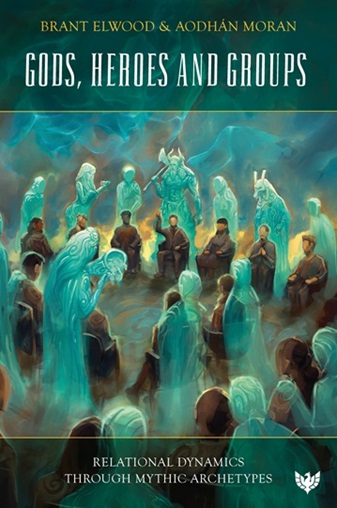Gods, Heroes and Groups: Relational Dynamics through Mythic Archetypes

Book Details
- Publisher : Karnac Books
- Published : 2024
- Cover : Paperback
- Pages : 152
- Category :
Group Psychotherapy - Category 2 :
Organisational Psychology - Catalogue No : 97812
- ISBN 13 : 9781800132870
- ISBN 10 : 1800132875
Reviews and Endorsements
Brant Elwood and Aodhán Moran offer us a unique language to think and talk about roles we take in groups. The archetypal lens they use elucidates and brings freshness to experiences in groups, as well as adding emotional feel and a sense of poetry. Their work is relevant to the emerging interest in group relations communities in connecting to the legacies and cultural myths of our ancestors. While the authors are knowledgeable and experienced, it is their palpable sense of awe that makes the book fun to read.
Raymond Bakaitis, PhD, President of the A. K. Rice Institute for the Study of Social Systems
Brant Elwood and Aodhán Moran’s riveting stories link gods and heroes to contemporary societal struggles, illustrating how we navigate authority, power, and leadership within groups. These complex narratives highlight the unwelcoming nature of group membership and that roles—Hero, Jester, Villain—play vital functions in relieving tensions and resolving conflicts. Professionals working with systems can leverage myths to promote nuanced thinking and discussions about roles in systems.
Sheri-Ann Cowie, PhD, Conference Director for the Center for the Study of Groups and Social Systems
With the advent of artificial intelligence, this book points us robustly back to the domains of human intelligence. The mythic realm is not just the unconscious, it is the place of dreams, fears, capacities, and creativity. Brant Elwood and Aodhán Moran invite leaders and advisers to delve deeper. The group mind may offer a new way to live and work in harmony with man and machine and paradoxically deepen our ability to live sustainably in partnership with nature.
Leslie Brissett, PhD, former Group Relations Programme Director at the Tavistock Institute of Human Relations
This wonderful book draws our attention to the nexus of mythology, psychoanalysis, spirituality, and group life. It fills a gap that contains extraordinary insights into our cultural inheritance as well as about today’s struggles. The writing is accessible and direct, but by no means simplistic. I wholeheartedly encourage anyone interested in these disciplines to read this book that puts systems psychodynamic thinking squarely at the centre of Western civilisation. It will help anyone interested in this nexus to become more effective.
James Krantz, PhD, organisational consultant and researcher from New York City and Managing Principal of Worklab

